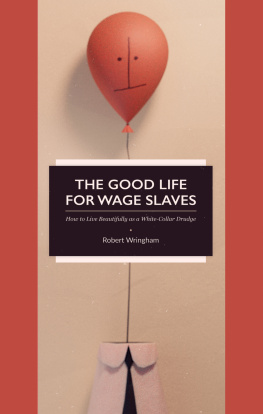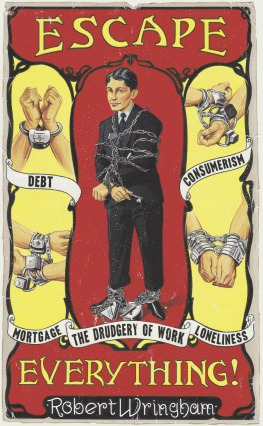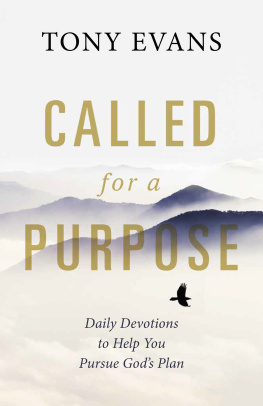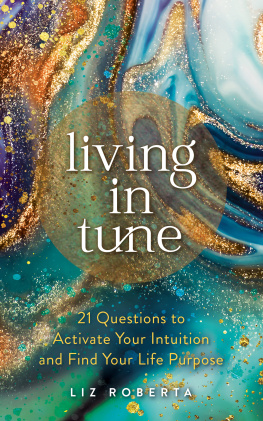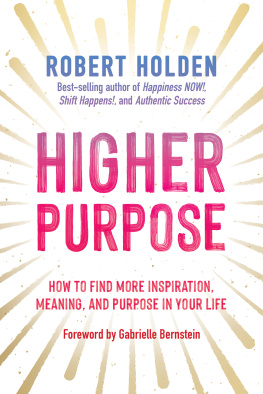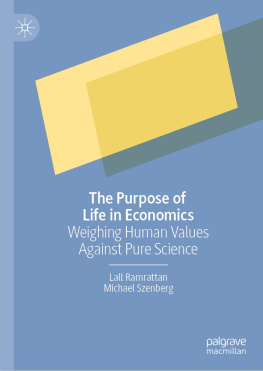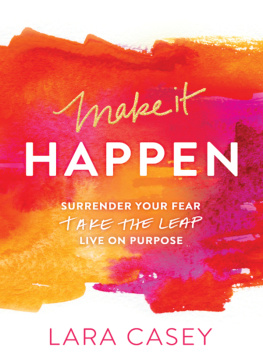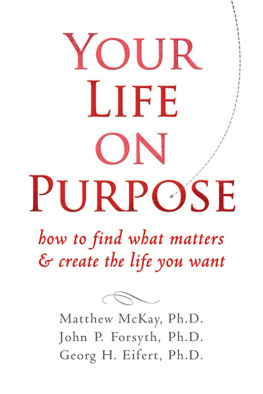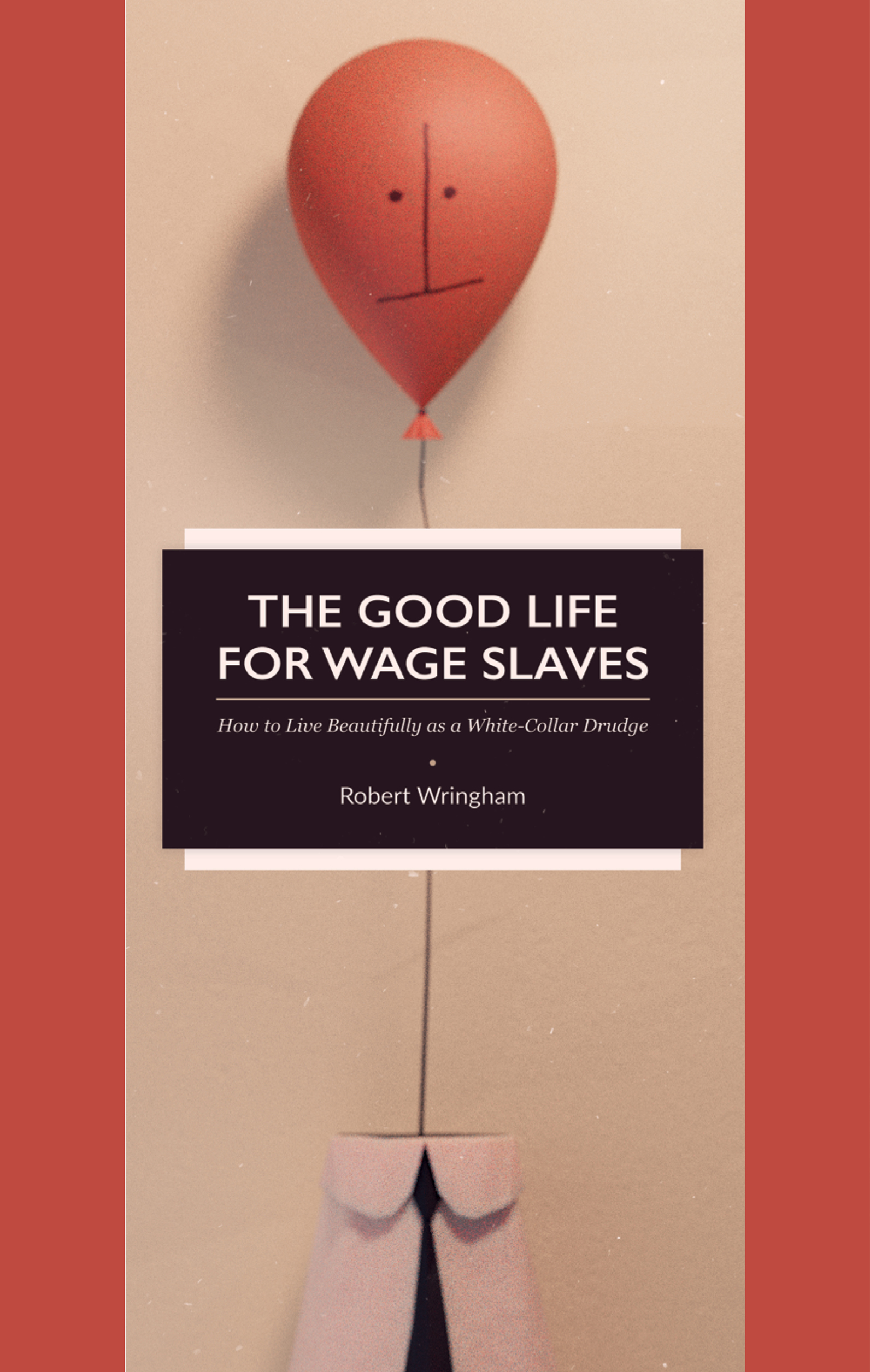THE GOOD LIFE
FOR WAGE SLAVES
How to live beautifully as a white-collar drudge
BY ROBERT WRINGHAM
This edition first published 2020
Ponies + Horses Books (Scotland)
The Hidden Lane Gallery, 1103 Argyle Street, Glasgow, G3 8ND
www.poniesandhorsesbooks.com
All rights reserved
The right of Robert Wringham to be identified as the author of this work has been asserted in accordance with Section 77 of the Copyright, Designs and Patent Act, 1988.
No part of this publication may be copied, reproduced, stored in a retrieval system, or transmitted, in any form or by any means without the prior permission of the publisher, nor be otherwise circulated in any form of binding or cover other than that in which it is published and without a similar condition being imposed on the subsequent purchaser.
Cover Design by Roman Muradov
Text Design by Keleigh Carter
A CIP record for this book is available from the British Library
Robert Wringham, 2020
ISBN 978-1-91063-174-4
Distributed by Smashwords
For Cheesy
These days one needed a full-scale emergency kit built into ones brain, plus a crash course in disaster survival, real and imagined.
J. G. Ballard, Concrete Island
Contents
About this book
Hostile Environments
In which we lament the need for physical presence; the lack of privacy in the open-plan office; the connection between the modern workplace and poor health; the problem of devoting so much time to people you do not love; and muse upon professionalism and the death of ideas.
In which we abandon busyness and the conventional ideas of success; consider the theory and practice of lunch; learn how best to use paid vacation; get serious about the art of the sickie; vow never again to miss a snow day; consider going part-time; salute those Wage Slaves who work condensed hours (or give the impression of it); consider the technological miracle of working from home and elsewhere; learn to identify our best hours and how to harness the zombie; consider the merits of the sabbatical and the career break; consider the horror or possible escape route of going back to school; and learn to reduce the commute.
In which we learn to survive through total absorption instead of marking time; see work as a transatlantic flight; weigh up the merits of switching off Mr. Brain; learn of the art of the digital detox; discover the art of the shrug and the awesome power of the roast chicken; see work as a gaudy bauble; find how to reconnect with nature without going anywhere; and look for opportunities to put the office in the bin.
In which we see how home has been co-opted by consumerism; and take heed of two warnings about what home can become.
In which we hear a case study about setting up from scratch; acknowledge a sensitivity to aesthetics; begin with the end in mind; downsize the home; embrace domestic minimalism; embrace simple sensory pleasures; get a brain massage through books; learn what to do with a musical instrument; vow to idle wholeheartedly; develop a creative practice; and consider ditching our Wage Slave name for personal protection and creative fun.
In which we re-embrace Home Economics as a way to be independent, autonomous and competent; consider the importance of place; go back to basics on personal finance; see how to stock a kitchen and mini-bar fit for philosophers; learn the value of cleaning up your own shit; learn how to avoid exercise; muse about how to dress like an unprofessional; accept that pets make your home smell like poo; consider the value of accommodating others; reflect on the personal staff you didnt know you had; condemn the car to the scrapheap; embrace frugality; reduce dependencies; and weigh up the merits of renting versus buying.
In which we think about work and home as sources of identity; accept that home is not where youre from or where your parents live; and muse on the idea of the portable, extended or exploded home.
In which we impact the culture and complete the cycle.
A GOOD LIFE MANIFESTO FOR WAGE SLAVES
- We work because we have to, not because we love it
- We refute that hard work and busyness are inherently good
- We will do our jobs efficiently and wellbut in the allotted time and in exchange for money, not for social capital or because we love to work
- We see no higher ideal than easy, good living
- We see career as a distraction from the good life
- We value time, freedom and mobility above money and hard work
- We spend as little time working as possible
- We do not feel guilty about being idle
- We are not ashamed to be creative, imaginative or artistic
- We do not allow work to compromise our health
- We draw identity from home life, not from work
- We do not outsource or delegate domestic responsibilities
- We do not see domestic labour as secondary to professional labour
- We embrace frugality, minimalism and simplicity in service to the good life
- We are amateurs and dilettantes.
- We are true teammates to our cohabiting partners
- We seek connection and relationships beyond Wage Slavery
- We are not perfectionists and we break our own rules wholeheartedly
- We export our way of life through the way we deport ourselves
- We are not the sum of our job descriptions!
PREFACE
I n previous books, and to some lucky people Ive sat next to on trains, Ive promoted the idea that we can escape the world of work and consumerism.
A happy alternative, Ive said, is a frugal life of simple, creative leisure. Its there! You can have it! Why work hard to fund an expensive life of complexity when the last time you were really happy was when you were blowing soap bubbles on a sunny patch of grass?
The real substance of a good life (friendship, health, free time) doesnt cost money at all, while the material essentials need not be expensive when youre resourceful and clever about it. Any time spent toiling (or, more likely, stewing in boredom) in a full-time job so that you might somehow get more is a waste of your effort and time.
Given the centrality of work and consumerism to Western society, people have been surprisingly nice about all this. Nobody has yet pelted my window with eggs or sent me a turd in a box. And yet there must be objections. One would be something like but I enjoy earning money and going shopping, you hipster doofus, in which case, carry on, madam. Another would be a variation on I cant subscribe to your way of life because of circumstances.
In the past, Ive not been so sure about these circumstances as an objection. Circumstances like having children or being in debt can fall within the remit of an escape plan: you can account for them. But when I experienced circumstances of my own, I had to check myself back into Wage Slavery after seven years of living nicely and telling the world it could live nicely too. How embarrassing.
Circumstance really can conspire against an escape. Alternatively, maybe you dont want to escape because, after weighing up the pros and cons of full-time employment versus frugal freedom, youre content to stay in the frying pan. If so, can the good life still be yours?
The idea of an escape plan clearly doesnt serve everyone. So how and this is the question with which I was suddenly posed when facing two and a half years of drudgerycan we approach the good life, while the bulk of our hours are spent acting essentially against our will? I used my two and a half years as a research project. This book is my report. It contains swearing.
As this book involves an element of memoir, Ive made efforts to disguise real people. For their pseudonyms, Ive used the names of historical cats famous enough to have their own pages on Wikipedia. Youll find my office-based world populated by people called Prince Chunk and Zoe the Cat and Misty Malarky Ying-Yang. My hope is that applying pet names to office workers will serve to highlight the violence of forcing kindly, soft-bodied mammals to work as network administrators. Whether or not this is successful, the book is 30% cuter than it would have otherwise been.

